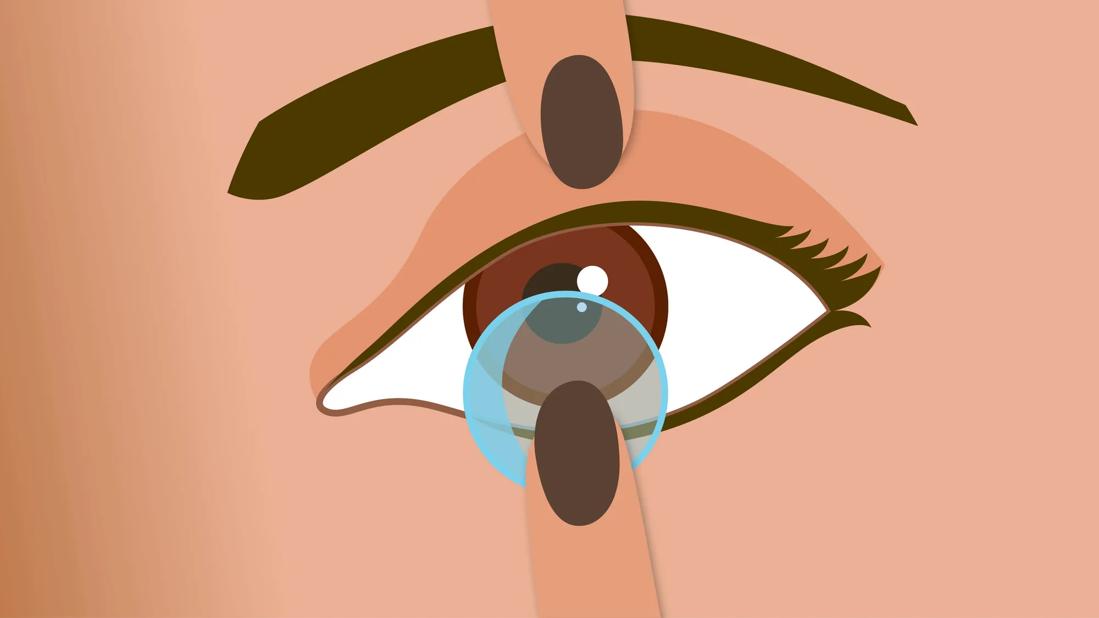The lifespan of contact lenses depends on whether you have reusable or disposable lenses

Image content: This image is available to view online.
View image online (https://assets.clevelandclinic.org/transform/adcb7a15-8386-47da-913a-36c7275da052/apply-contact-lenses-1389956895)
Fingers putting in a contact lens
If you’re a long-time glasses wearer or haven’t used contacts in a while, you may have a lot of questions about how to properly use contact lenses.
Advertisement
Cleveland Clinic is a non-profit academic medical center. Advertising on our site helps support our mission. We do not endorse non-Cleveland Clinic products or services. Policy
Maybe you’re asking yourself: How long do contacts last? Do they expire? Should I choose reusable or dailies?
Whatever your questions, you should know that contacts require a certain amount of upkeep and attention. “Ignoring the replacement schedule of your contact lenses can cause serious problems,” says optometrist Wes Immler, OD. “This can range from minor irritation to permanent damage.”
Dr. Immler shares what you should know when considering daily or reusable contact lenses.
How long your contacts will last depends on the type of lenses you’re using and how you care for them. While disposable lenses last anywhere from one day to a month, reusable lenses can last up to a year.
Keep in mind: While reusable contacts have a longer wear period than disposable ones, they still need to be taken out and stored in fresh solution each night.
Disposable lenses are designed to be worn for a certain amount of time and then discarded. These contact lenses are designed to safely stay in your eyes for around eight to 16 hours at a time.
Here are the types of disposable contact lenses you can choose from:
Advertisement
Reusable lenses are where you get a pair of lenses and wear them, clean them in a solution and then start the cycle again the next day. These are non-disposable contact lenses that can be worn for multiple months if cared for properly.
These are also called “rigid gas permeable (RGB) lenses.” The wear time for these is one to two years with proper care. These are usually recommended for people with high prescriptions, a large amount of astigmatism, or keratoconus.
“They are not used as commonly anymore but are beneficial and sometimes even the only option for certain people,” Dr. Immler notes.
The answer is simple: Yes. Contacts absolutely expire and it’s never recommended to wear expired contact lenses. Contact lenses have expiration dates for a reason — they’re designed with specific materials that can degrade over time. You can view the expiration date on the box your contact lenses come in or consult your healthcare provider.
Using expired lenses can pose several risks, like:
As there is an array of contact lenses to choose from, you can pick a type that works with your schedule and lifestyle. Then, just make sure to know your replacement schedule and be strict about following it.
If you’re not sure what type of contact lens is right for you, talk to an eye care professional to learn more about your options.
Advertisement

Sign up for our Health Essentials emails for expert guidance on nutrition, fitness, sleep, skin care and more.
Learn more about our editorial process.
Advertisement
A correct prescription helps your eyes see clearly — but as natural changes occur, you may need stronger or different eyeglasses
It usually takes anywhere from a couple of days to a few weeks to get fully adjusted
While rare, it is possible to have an allergic reaction to materials used in contact lenses or ingredients found in contact solution
Keep your eyes healthy by not sleeping in your contacts, properly caring for your lenses and wearing eye protection when necessary
While it may seem harmless, showering — or even swimming or washing your face — with contacts in can cause sensitivity to light, irritation and even an infection
Even napping with contacts in can lead to eye infections, lens displacement and dry eyes
Both have pros and cons, but ultimately it’s a personal decision only you can make
Your eye prescription reveals a lot about your eye health, including how they’re shaped, how well you see and what your new glasses can do for your sight
Although it could be used as a moisturizer, this new trend is not recommended
Communicating clear limits helps protect your time, energy and emotional well-being
High cholesterol can be genetic, but testing and treatment can lower your heart disease risk